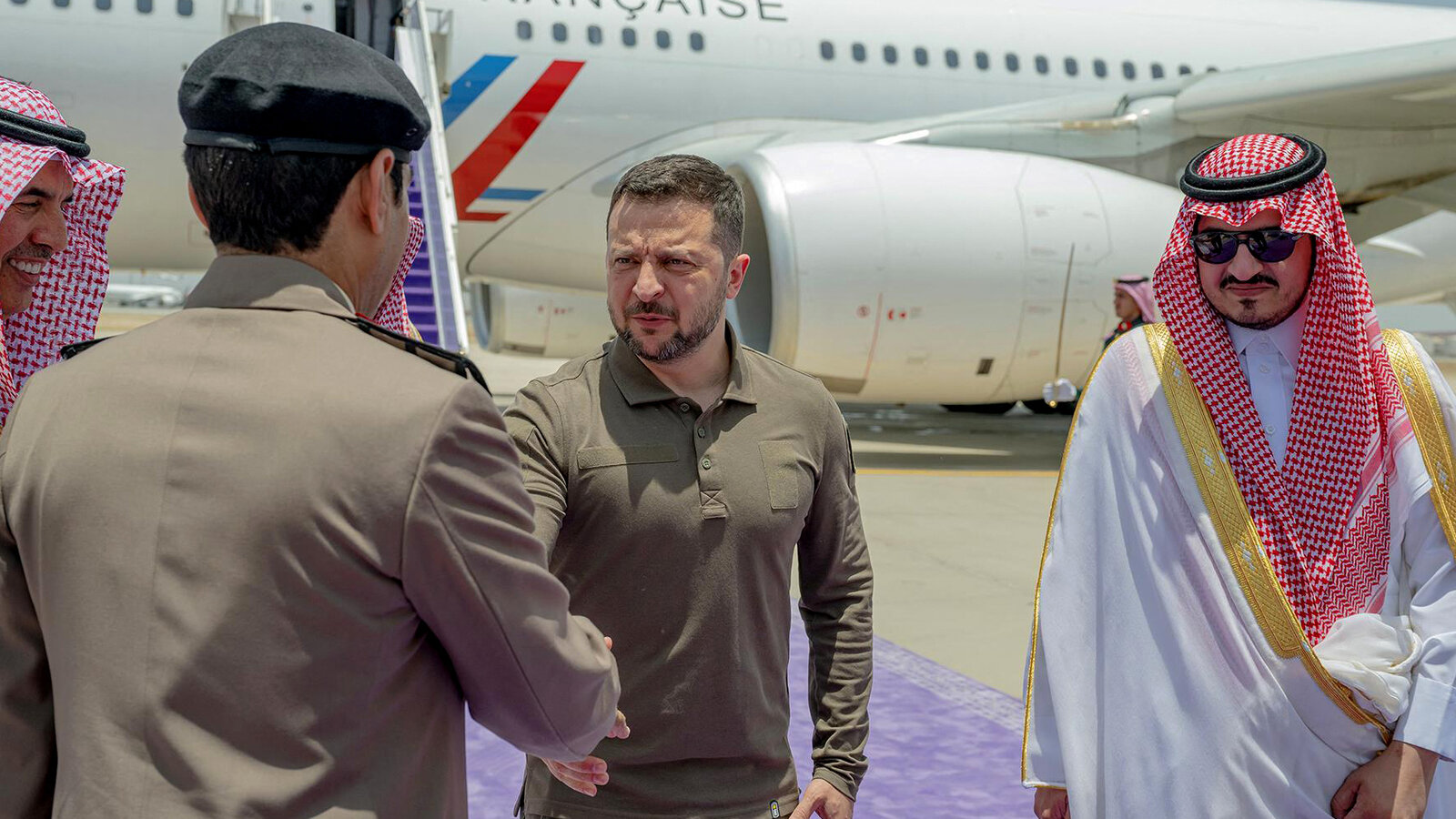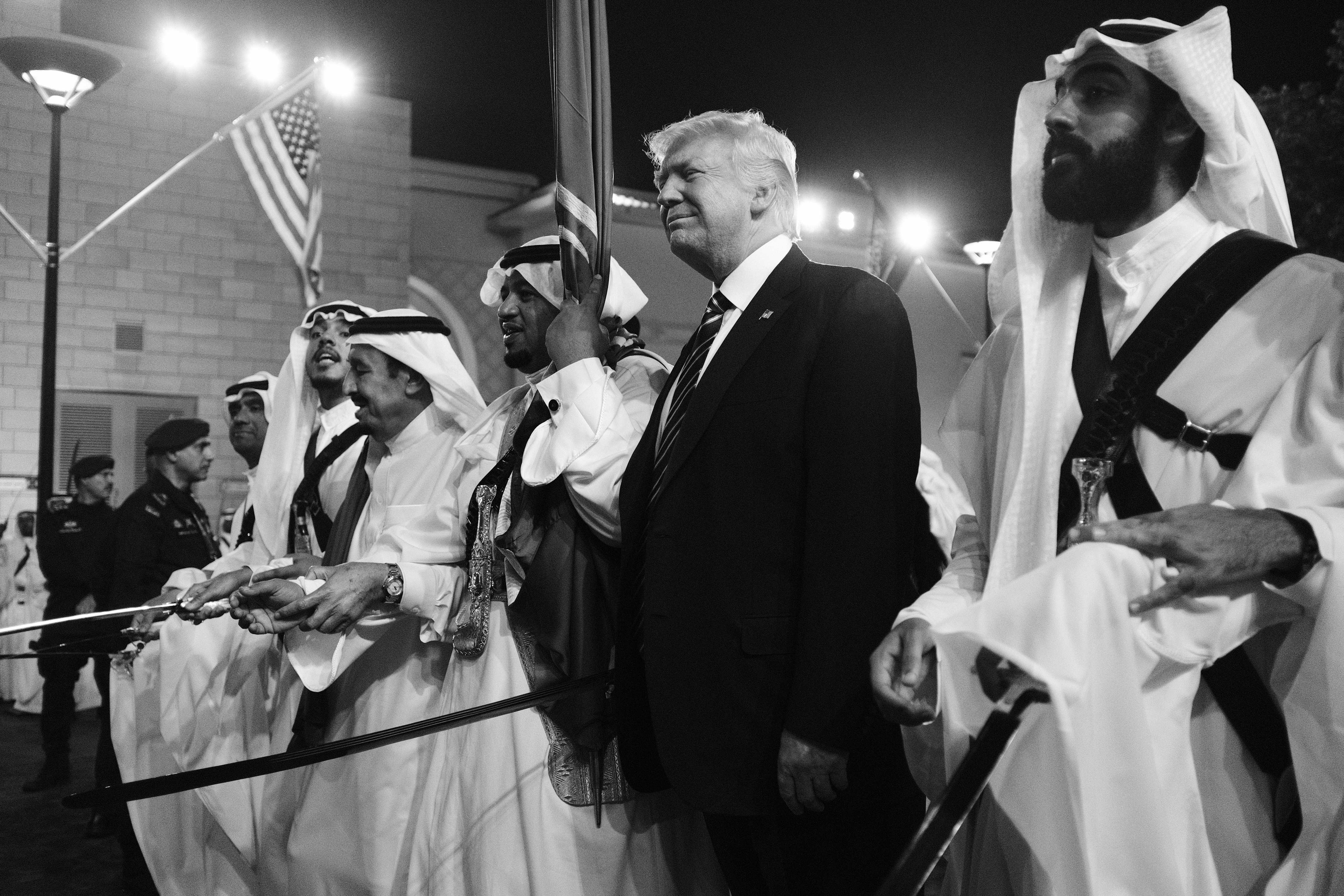Russia's Peace Talks: A Case Study In Diplomatic Miscalculation

Table of Contents
Underestimation of Ukrainian Resolve and Western Support
Russia's initial approach to peace negotiations was fundamentally flawed by a series of critical miscalculations regarding the Ukrainian conflict. These miscalculations significantly hampered the peace process and contributed to the escalation of the conflict.
-
Miscalculation 1: Expectation of a Swift Victory and Compliant Government: Russia's intelligence assessments grossly underestimated the Ukrainian people's determination to resist occupation. The Kremlin seemingly believed a swift military victory would lead to the installation of a pro-Russian regime, rendering formal negotiations largely unnecessary. This assumption ignored the deep-seated national identity and pro-Western sentiment within Ukraine.
-
Miscalculation 2: Underestimation of Ukrainian Armed Forces and Civilian Resilience: Russia underestimated the fighting capabilities of the Ukrainian military, significantly aided by Western military assistance. The unexpectedly fierce resistance, coupled with the remarkable resilience of Ukrainian civilians, quickly stalled Russia's initial military advances and disrupted their negotiation strategy. The heroic defense of cities like Mariupol highlighted this unexpected level of resistance.
-
Miscalculation 3: Failure to Anticipate Unified Western Support: The Kremlin failed to accurately predict the level of international condemnation and the extent of the unified Western response to the invasion. The swift imposition of sanctions, coupled with the substantial military and financial aid provided to Ukraine, significantly weakened Russia's negotiating position and prolonged the conflict. This coordinated Western response effectively countered Russia's attempts to isolate Ukraine diplomatically.
-
Bullet points:
- Intelligence failures, particularly regarding the Ukrainian military's preparedness and public support for resistance, played a significant role.
- Sanctions imposed by the West crippled the Russian economy, restricting its ability to fund a prolonged conflict and influence negotiations.
- NATO's response, while stopping short of direct military intervention, provided Ukraine with crucial defensive capabilities and bolstered its resolve.
Communication Failures and Lack of Transparency
The failure of Russia's peace talks was further exacerbated by significant communication failures and a lack of transparency, eroding trust and hindering productive dialogue.
-
Miscalculation 1: Reliance on Opaque Communication Channels: Russia's reliance on opaque communication channels and its reluctance to engage openly with international mediators created suspicion and hindered progress. This lack of transparency fueled speculation and mistrust, making it difficult to establish a basis for constructive negotiations.
-
Miscalculation 2: Inconsistent and Contradictory Messaging: Inconsistent and often contradictory statements from various Russian officials further undermined their credibility. This confused messaging created an environment of uncertainty, making it nearly impossible for other parties to discern Russia's true intentions or negotiating positions.
-
Miscalculation 3: Failure to Address International Concerns: Russia's failure to constructively engage with international concerns regarding human rights violations and territorial integrity damaged its international standing and limited its negotiating leverage. The numerous reports of war crimes and atrocities further undermined Russia's credibility and reduced the willingness of other nations to engage seriously in peace talks.
-
Bullet points:
- Public statements by Russian officials often contradicted each other, sowing confusion and hindering trust-building.
- The use of propaganda and disinformation further complicated efforts to establish open and honest communication.
- The lack of a clear and consistent negotiating position hindered progress in the peace talks and ultimately contributed to their failure.
Rigid Negotiating Stance and Unrealistic Demands
Russia's rigid negotiating stance and unrealistic demands proved to be major obstacles to a peaceful resolution of the conflict.
-
Miscalculation 1: Unwillingness to Compromise on Key Issues: Russia's unwillingness to compromise on key issues, such as recognizing Ukrainian sovereignty and territorial integrity, demonstrated a lack of flexibility and a disinterest in a genuine peace process. This inflexible stance signaled a lack of commitment to a negotiated settlement.
-
Miscalculation 2: Imposition of Unacceptable Demands: The imposition of demands like Ukraine's demilitarization and "denazification," perceived as unrealistic and designed to subjugate Ukraine, completely undermined the possibility of productive dialogue. These demands were seen as non-negotiable by the Ukrainian government and its Western allies.
-
Miscalculation 3: Failure to Adapt Negotiating Strategies: Russia failed to adapt its negotiating strategies in response to changing circumstances on the battlefield and increasing international pressure. This lack of adaptability further contributed to the failure of the peace talks.
-
Bullet points:
- Demands for demilitarization and "denazification" were seen as thinly veiled attempts to impose Russian control over Ukraine.
- The lack of willingness to compromise on territorial integrity, including Crimea and the Donbas region, further complicated negotiations.
- A more flexible approach, acknowledging Ukraine's right to self-determination and territorial integrity, may have yielded more positive results.
The Impact of Domestic Politics on Russia's Diplomatic Strategy
Domestic political considerations significantly shaped Russia's diplomatic approach and contributed to the failure of the peace talks.
-
Miscalculation 1: Maintaining a Strongman Image: The Kremlin's need to maintain a strongman image domestically constrained its ability to compromise and engage in flexible negotiations. Concessions might have been seen as weakness and could have undermined President Putin's authority within Russia.
-
Miscalculation 2: Influence of Hardline Factions: Pressure from hardline factions within the Russian government advocating for a more aggressive approach may have limited the Kremlin's willingness to engage in serious negotiations. This internal political pressure likely limited the flexibility of Russia's negotiating position.
-
Miscalculation 3: Control over Information and Suppression of Dissent: The Kremlin's tight control over information and suppression of dissenting voices limited the diversity of perspectives that could have informed the diplomatic strategy. This lack of internal debate may have led to a flawed assessment of the situation and unrealistic expectations.
-
Bullet points:
- The cultivation of a nationalistic narrative emphasizing the need to protect Russia's interests played a significant role in shaping public opinion and constraining the government's flexibility.
- The influence of powerful oligarchs and military leaders could have also played a role in shaping Russia's aggressive stance.
- The absence of open and critical discussion within the Russian government hindered the ability to adapt to changing circumstances and find common ground.
Conclusion: Lessons from Failed Negotiations
Russia's peace talks concerning the Ukraine conflict serve as a stark example of diplomatic miscalculation, stemming from a confluence of factors including underestimation of Ukrainian resolve, communication failures, a rigid negotiating stance, and the influence of domestic politics. These failings have resulted in a prolonged and devastating conflict, significantly damaging Russia's international standing and generating widespread humanitarian suffering. Understanding the complexities of Russia's diplomatic failures in these peace talks offers crucial insights into the dynamics of international conflict and the importance of effective negotiation strategies. Further research and analysis of these Russia's peace talks are essential for preventing future diplomatic miscalculations and fostering more effective conflict resolution mechanisms. The study of these failures is crucial for improving international diplomacy and achieving peaceful resolutions in future conflicts.

Featured Posts
-
 Damiano David Maneskin Funny Little Fears Tracce Collaborazioni E Data Di Uscita Dell Album
May 18, 2025
Damiano David Maneskin Funny Little Fears Tracce Collaborazioni E Data Di Uscita Dell Album
May 18, 2025 -
 Reputation Taylors Version Taylor Swifts Official Teaser And What It Means For Fans
May 18, 2025
Reputation Taylors Version Taylor Swifts Official Teaser And What It Means For Fans
May 18, 2025 -
 Amsterdam Knife Attack Police Raid Hotel After Multiple Injuries
May 18, 2025
Amsterdam Knife Attack Police Raid Hotel After Multiple Injuries
May 18, 2025 -
 Kanye West Claims Taylor Swift Blocked His Super Bowl Performance
May 18, 2025
Kanye West Claims Taylor Swift Blocked His Super Bowl Performance
May 18, 2025 -
 The Geopolitical Fallout Of Trumps Middle Eastern Tour
May 18, 2025
The Geopolitical Fallout Of Trumps Middle Eastern Tour
May 18, 2025
Latest Posts
-
 Kim Kardashian And Bianca Censori A Joint Effort Against Kanye West
May 18, 2025
Kim Kardashian And Bianca Censori A Joint Effort Against Kanye West
May 18, 2025 -
 Kanye Wests Funeral Instructions Inspired By Pasha Technik
May 18, 2025
Kanye Wests Funeral Instructions Inspired By Pasha Technik
May 18, 2025 -
 Did They Split Kanye West And Bianca Censori Dine Together In Spain
May 18, 2025
Did They Split Kanye West And Bianca Censori Dine Together In Spain
May 18, 2025 -
 Pokhorony Po Uestovski Vdokhnovenie Ot Pashi Tekhnikom
May 18, 2025
Pokhorony Po Uestovski Vdokhnovenie Ot Pashi Tekhnikom
May 18, 2025 -
 Instruktsiya Kane Uesta K Sobstvennym Pokhoronam Vdokhnovenie Ot Pashi Tekhnikom
May 18, 2025
Instruktsiya Kane Uesta K Sobstvennym Pokhoronam Vdokhnovenie Ot Pashi Tekhnikom
May 18, 2025
